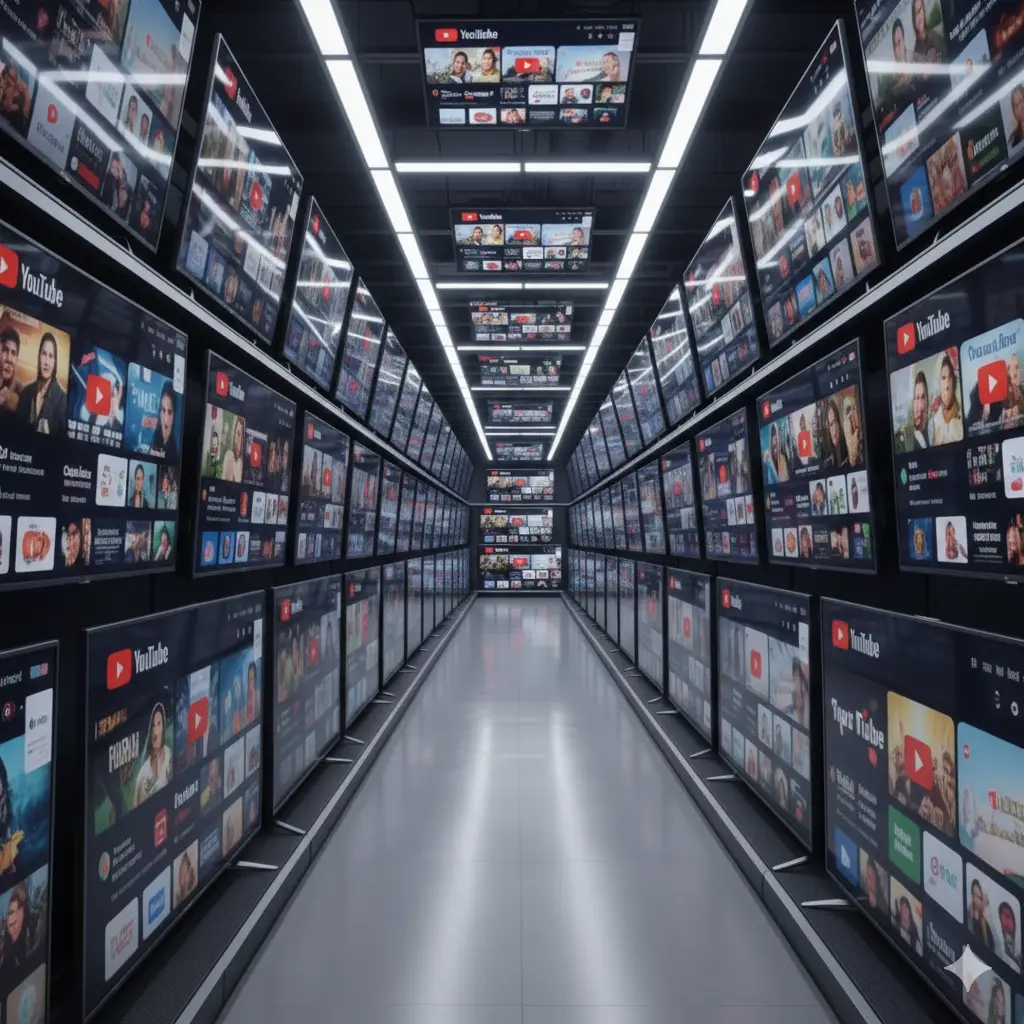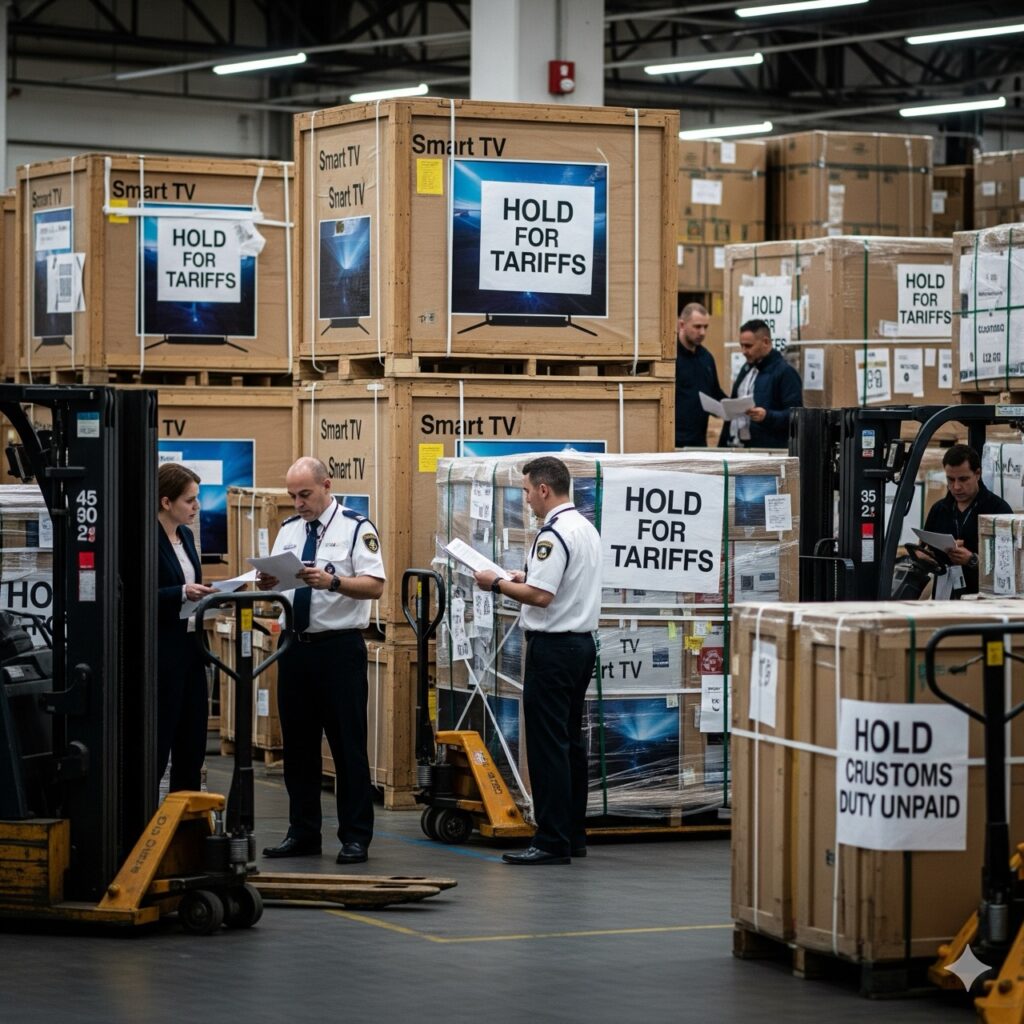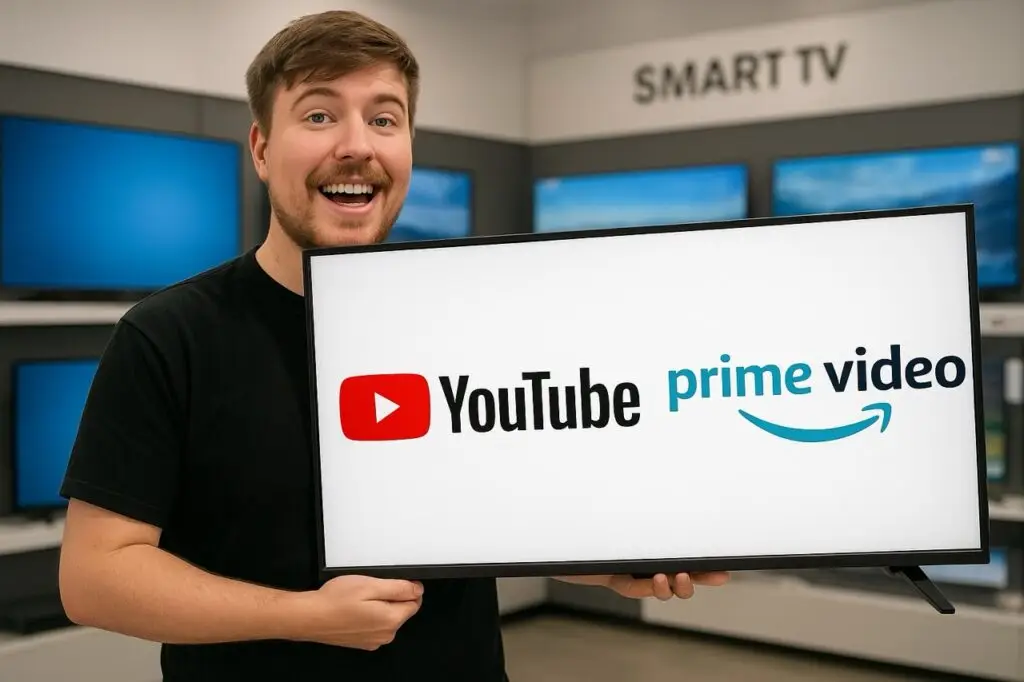Smart TVs Fueled YouTube's Living Room Takeover, right?
Inspiration: Your TV remote sitting next to you.
First of all, let’s make it clear that this is not a political post that trashes tariff policy, or taken by an international commerce expert.
Once again, this is a performance marketer who is trying to connect a few dots and share the process with you, the world.
Ready?
Great. Let’s do this…

If you have a smart TV remote next to you, take a look at it.
What do you see?
Assuming it’s not an Apple TV, you most likely see buttons for popular streaming devices like Netflix, Prime Video, and.. YouTube.
Companies like Google and Amazon pay a decent amount to TV manufacturers to get their apps added to the smart TVs and the remotes that come with them.
Imagine if 3rd party apps could pay extra to add a button to your iPhone’s apps list, or a direct button on your phone.
Pretty good deal, right?
Well, as long as we have enough “prime real estate” on remotes, I guess.
Okay, so what’s the point here?
I think by now, you can understand how the growth of smart TVs (which has exceeded 73% ownership in the US, and 76% in Europe, according to Gemini), played a role in the growth of YouTube viewership.
In fact, if you do a tiny Google search on Google’s push for connected TV (CTV) screens, you could pretty much connect the dots yourself.
So, in short, more smart TV sales and increased ownership of smart TVs in the markets led to increased adoption of YouTube as a key player in the streaming world.

Insert Tariffs: Price Hikes, Leading to Decreased Sales
By now, you can probably guess where we are heading.
List most electronics, there is a good chance that the smart home you have in your living room was manufactured elsewhere.
As of August 2025, according to Gemini, tariffs on consumer electronics like smart TVs range from 7.5% to over 25% on certain components.
Major Smart TV manufacturers are actively diversifying their supply chains to countries like Mexico and Vietnam to mitigate these costs, but the increased financial pressure is expected to translate into higher retail prices for you and me, the consumers.
If there’s anything I have learned from the introductory economics courses taught at the college, it’s that increased prices almost always lead to reduced consumption of most goods.
Especially the smart TVs, which don’t react to price increases the same way as a Louis Vuitton bag would.
Heck, many consumers even wait for deals like Black Friday to purchase these items.

Google: Not So Tariff-Proof?
While it is also possible that tariffs could impact many merchants, leading to having less budget to spend on Google Ads, Google’s growing golden child (YouTube) faces a bigger risk here.
Other than promising initiatives like Google AI and Waymo, YouTube (already profitable, with great growth) is one of the key hopes for Alphabet/Google, which puts them in an odd situation with the current state of tariffs.
Don’t get me wrong. Alphabet is not the only player at risk here.
Disney’s Disney+ and Amazon’s Prime Video also share the same fate here.
As a company directly impacted by tariffs, Amazon likely has other issues to deal with.
But that doesn’t make it any easier for Google, as YouTube apparently made a whopping $36.1 billion in revenue through advertising.
If the data from Gemini is correct, that is 13.64% of Google’s total advertising income.
Time will tell what lies ahead. Perhaps their other investments, like Waymo, will show better-than-expected growth and help Google cruise through these fluctuations (no pun intended).
Either way, as a tech enthusiast and a performance marketer who directly benefits from Google’s growth, I do hope we will find a way to get through these fluctuations.
Until then, let’s see if another content creator topples Mr. Beast’s income, made possible by yours truly, YouTube.
